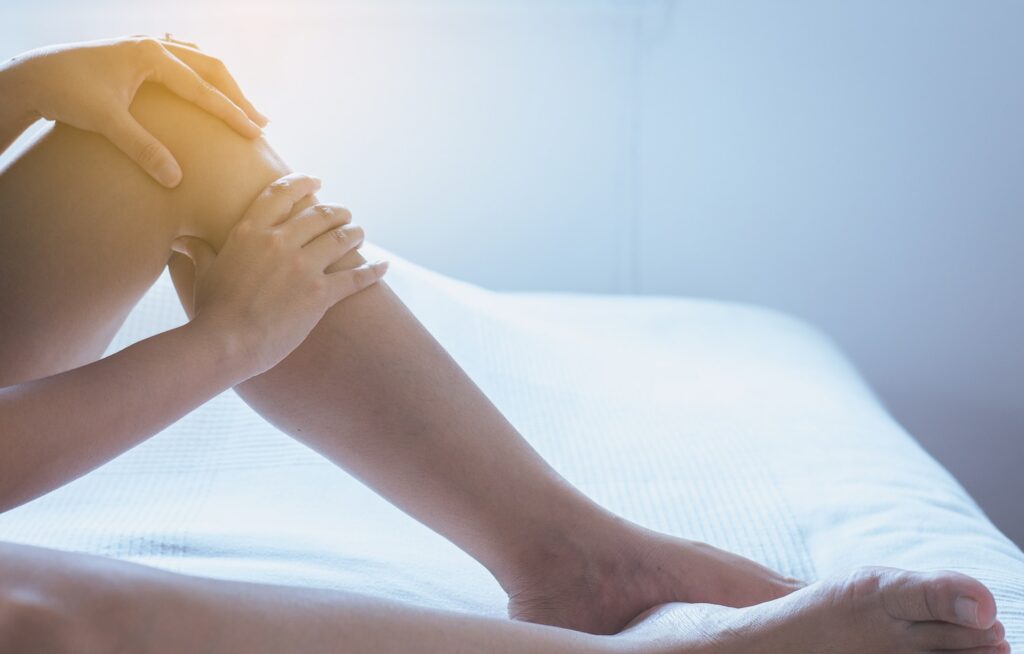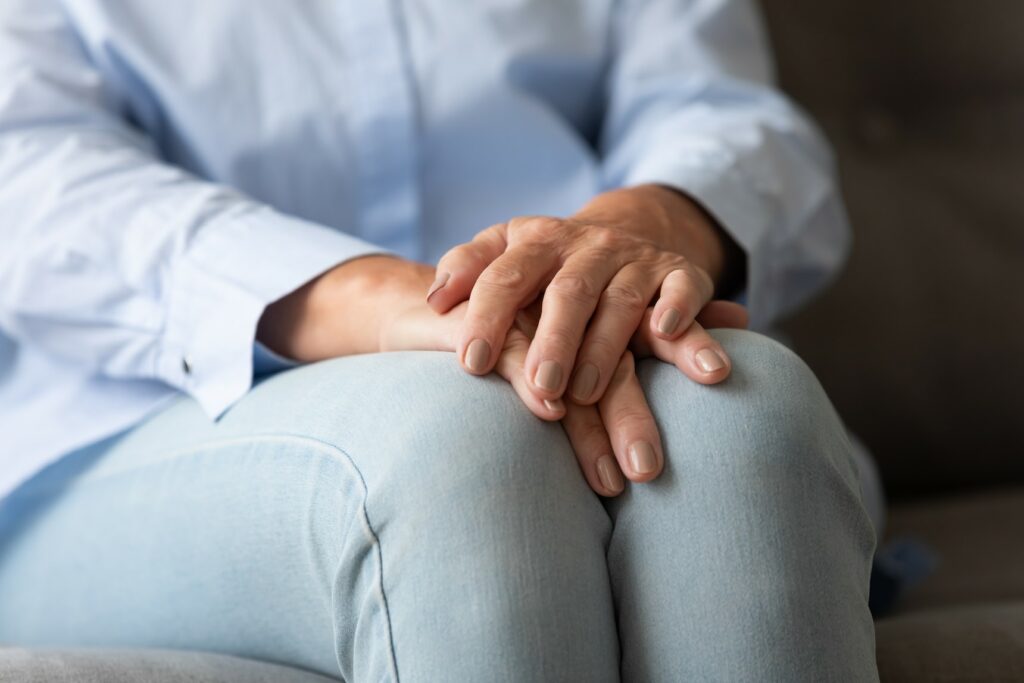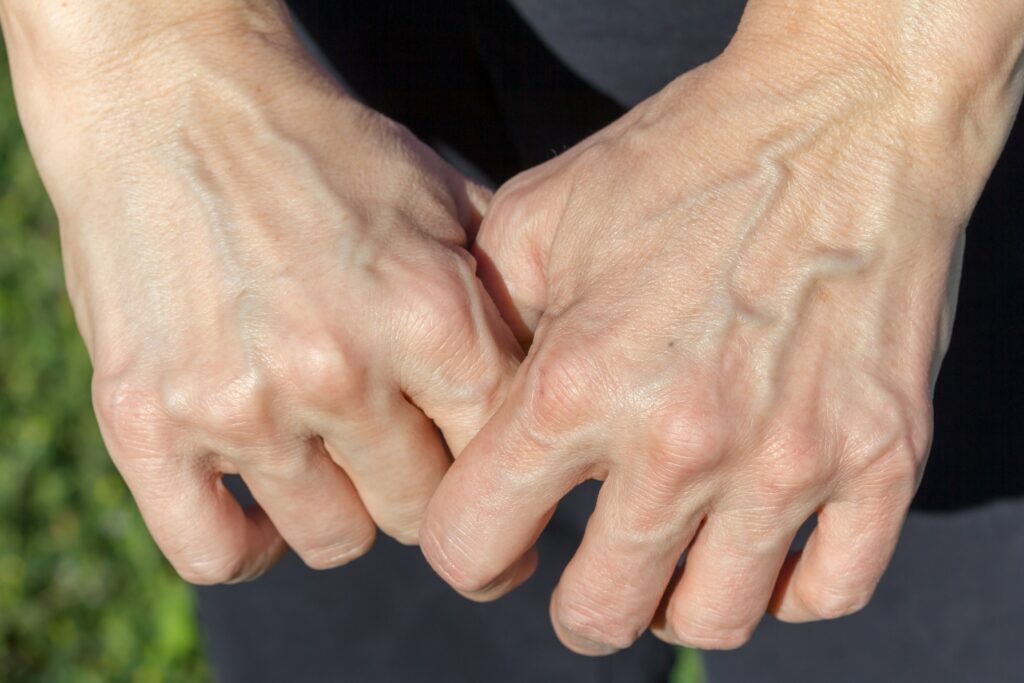Women know all too well the misery that can be associated with the menstrual cycle, particularly in the days immediately preceding and at the beginning of their period each month. From moodiness and emotional lability, brain fog and anxiety, to migraine and tension headaches; appetite changes and food cravings to insomnia and excessive fatigue; pelvic pain and discomfort – even a woman with a very healthy reproductive system can experience ill effects with her monthly cycle. These can interfere with her daily activities, obligations, and quality of life for at least a few days each month.
Some women also experience troublesome symptoms including heaviness, pain, and discomfort in the legs in the week or so before their period. What causes this
Do you have varicose veins? It may come as a surprise to learn that there is indeed a relationship between varicose veins and the menstrual cycle.
Varicose Veins
Varicose veins occur when the one-way valves that prevent the backflow of blood due to gravity become weak and fail. Weakened vein walls also contribute to the problem.
Many women with varicose veins report that they experience heightened discomfort and extra swelling of their legs just before their period. But not all women who experience these symptoms relating have varicose veins – yet. Hormones have a distinct influence on the blood vessels, and throbbing, aching veins are common premenstrual symptoms.
Varicose Veins & the Menstrual Cycle
The menstrual cycle is primarily driven by two main hormones: oestrogen and progesterone. These are natural steroid hormones that help regulate reproduction in humans and other mammals.
● Oestrogen regulates the menstrual cycle. It is secreted by the ovaries before ovulation, and its secretion is largely controlled by follicle-stimulating hormone (FSH) in the brain. When a woman becomes pregnant, oestrogen induces the enlargement of the uterus and breasts.
● Progesterone supports a pregnancy. It is secreted by the ovaries after ovulation has occurred and is primarily controlled by luteinizing hormone (LH) in the brain. When a woman is pregnant, progesterone prevents the uterus from contracting and also stimulates the growth of the mammary glands.
Oestrogen and progesterone must be balanced and combined properly for a healthy menstrual cycle and pregnancy.
Progesterone is the culprit in terms of vein issues associated with the menstrual cycle.
Progesterone levels peak in the body after ovulation and around a week before the menstrual period is due to begin. This surge in the hormone causes the vein walls to loosen; the veins throughout the body dilate to accommodate increased blood flow. This excess blood flow strains the valves within the veins. The valves may fail somewhat, and blood pools in the lower legs as a result. (This can also occur deep in the pelvis, causing a characteristic pulling/dragging sensation). This can, over time, cause varicose veins to form or worsen.
A very small research study performed in 2011 at Chicago’s Northwestern University analysed women who experienced symptoms of varicose veins and found that in 80% of the women, the diameter of the greater saphenous vein (the large superficial vein in the leg commonly impacted by varicosity) increased by more than 70% before their period. Another study, published in Phlebology in 2007, found comparable results that also suggested that the decrease in progesterone after the menstrual period begins actually alleviates the symptoms of varicose veins.
The periodic discomfort, aching, throbbing, and pain a woman can experience in her legs is a direct result of these hormonal effects and is directly related to her menstrual cycle. After menstruation occurs, these symptoms disappear, as the level of progesterone in the body plummets.
What Can You Do?
Just because you experience vein symptoms with your menstrual cycle, doesn’t mean that you have varicose veins. It is, however, a sign that you should be aware of your risks and take some preventative action to:
● Reduce the aching and throbbing leg issues associated with your menstrual cycle
● Mitigate your risks of developing varicose veins
● Understand whether you have varicose veins or not and ensure that you do not have underlying, currently invisible varicosities
● Have existing varicose veins treated appropriately
Strategies to Improve Your Symptoms
● Get plenty of gentle exercise, especially leg exercises that focus on moving and strengthening the calves.
● Consider wearing compression socks or stockings during the premenstrual period, to support the legs and veins and alleviate symptoms.
● Drink plenty of water and avoid excess salt intake.
● Maintain a healthy diet with plenty of flavonoids (which support vein health, e.g., broccoli, onions, garlic, citrus, spinach, capsicums, cherries, grapes, blueberries, and cocoa).
● Elevate your legs when you can.
● Maintain a healthy body weight and try to reduce if you are overweight. Obesity is a major cause of varicose veins and losing weight can help to both ease swelling and reduce pressure on the veins.
● Avoid wearing high-heeled shoes, especially in the workplace and/or if you need to stand for long periods.
● Using an ice pack may help alleviate swelling, heat, and discomfort.
● For moderate to severe pain, consider using anti-inflammatory medications (check with your doctor or pharmacists first).
Get Relief from Varicose Veins with Dr Nicole James
With a strong background in vascular and cardiothoracic surgery, Dr Nicole James has a wealth of experience in treating blood vessel conditions and her expertise with minimally invasive varicose vein treatments is unrivalled.
You do not need a GP referral to see Dr James in our clinic.
She will consult with you to understand your concerns, and determine whether you indeed have varicosity requiring treatment or your vein symptoms are purely hormonal. She can provide advice and guidance on the best way forward for you.
Should varicose vein treatment be warranted, Dr James will explain what is necessary and which is the very best treatment approach for your individual case.
Vein treatments with us are eligible for Medicare rebates.
Depending on your unique circumstances, you may require Ultrasound Guided Sclerotherapy, Endovenous Laser Ablation, and a combination thereof.
Contact us via our online contact form, call (02) 9906 1555 or email [email protected].




